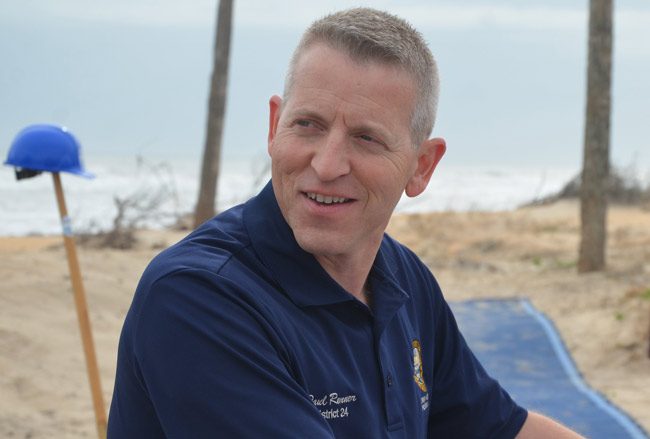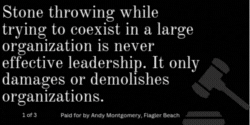
Florida lawmakers on Friday overwhelmingly approved a criminal-justice package that includes the first change in 35 years to the legal threshold for felony theft and reducing punishment for some non-violent offenders.
Supporters said the legislation, which now heads to Gov. Ron DeSantis, is an “important first step” to addressing problems in Florida’s criminal-justice system, with some lawmakers saying they would like to see it go further.
“Obviously, there’s more that I wish we could have done,” said Sen. Jeff Brandes, a St. Petersburg Republican who sponsored the bill (HB 7125) in the Senate. “I hope over the next few years we will cast a bold vision for what criminal justice should look like in this state.”
At the start of the legislative session, Brandes proposed a package that would have allowed thousands of non-violent offenders to be released from prison earlier for good behavior. It also would have given judges more leeway over sentences of nonviolent drug offenders.
But the Senate could not reach a compromise on some of the biggest changes proposed by Brandes, and a deal was struck to strip a number of provisions as the legislative session prepared to end. Lawmakers were expected to finish most of the session Friday, returning Saturday only to pass a budget.
The House voted 110-0 on Friday to give final approval to the package, which the Senate approved in a 39-1 vote Thursday. Only Sen. Randolph Bracy, D-Orlando, voted against the bill.
House sponsor Paul Renner, R-Palm Coast, issued a statement after Friday’s vote that said, in part, the idea behind the measure was to “establish common-sense reforms” for people convicted of low-level, non-violent crimes.
“We believe this criminal justice package is a tremendous step in the right direction in reducing barriers to work and opportunity and providing employment assistance for those with a criminal record, which we believe will further reduce our crime rate,” Renner said.
The package includes, among many things, raising the felony-theft threshold from $300 to $750. The House has initially sought to increase the threshold to $1,000, but that came down amid strong opposition from some of the state’s largest retailers like Walgreens and Walmart.
“It’s a long time coming,” said Rep. Wengay Newton, D-St. Petersburg. Using an example of a 14-year-old boy who stole a cell phone and had a felony on his record, Newton said raising the threshold “gives young people opportunities so they can come back.”
Other changes praised by Republicans and Democrats in both chambers included expanding the availability of inmate reentry programs and offering more opportunities for felons to get occupational licenses.
Also, the bill would raise the base threshold amount for trafficking in hydrocodone from 14 grams to 28 grams, and non-violent drug offenders would have their driver’s licenses suspended for six months instead of a year.
But lawmakers didn’t go as far as many criminal-justice reform advocates wanted. For example, the Senate agreed to scrap a proposal that would have allowed convicted non-violent offenders to be released from prison after serving 65 percent of their sentences instead of 85 percent for good behavior.
Another proposal that did not make it across the finish line would have allowed people who committed aggravated assaults or attempted aggravated assaults to have sentences reduced if their crimes took place before July 1, 2016, when the Legislature had harsher mandatory minimum sentencing guidelines for those crimes.
Tossing some of these proposals frustrated people such as Bracy, who said he was “tired of submitting to the will of the House” on issues.
But other reform advocates, including some conservative-leaning groups, were supportive of the package overall.
“This is only the beginning, and we are so encouraged by the appetite to shift resources from the bricks and mortar of prison to developing better interventions to reduce recidivism, prevent victimization and promote public safety,” said Chelsea Murphy, the Florida state director for Right on Crime, which is backed by Koch Industries and the conservative Koch network of donors.
–Ana Ceballos, News Service of Florida




























Anthony Romano says
I take a harder line on crime and punishment. I believe sentences should be served in their entirety. Getting an early out for good behavior is a ridicules notion. How hard is it to be good in prison. You should get your sentence increased if you are not good! Reducing sentences for non violent offenders and drug dealers is an other joke, Why have a criminal justice system at all. Most criminals have hade several chances to reforme their behavior long before they ever do time. Oh yes and lets get all these bad guys and thieves contractor licenses so they can come into our homes and case them out, criminal records unbeknown to the homeowners who hire them. Sorry, but I’m not buying what you are selling.